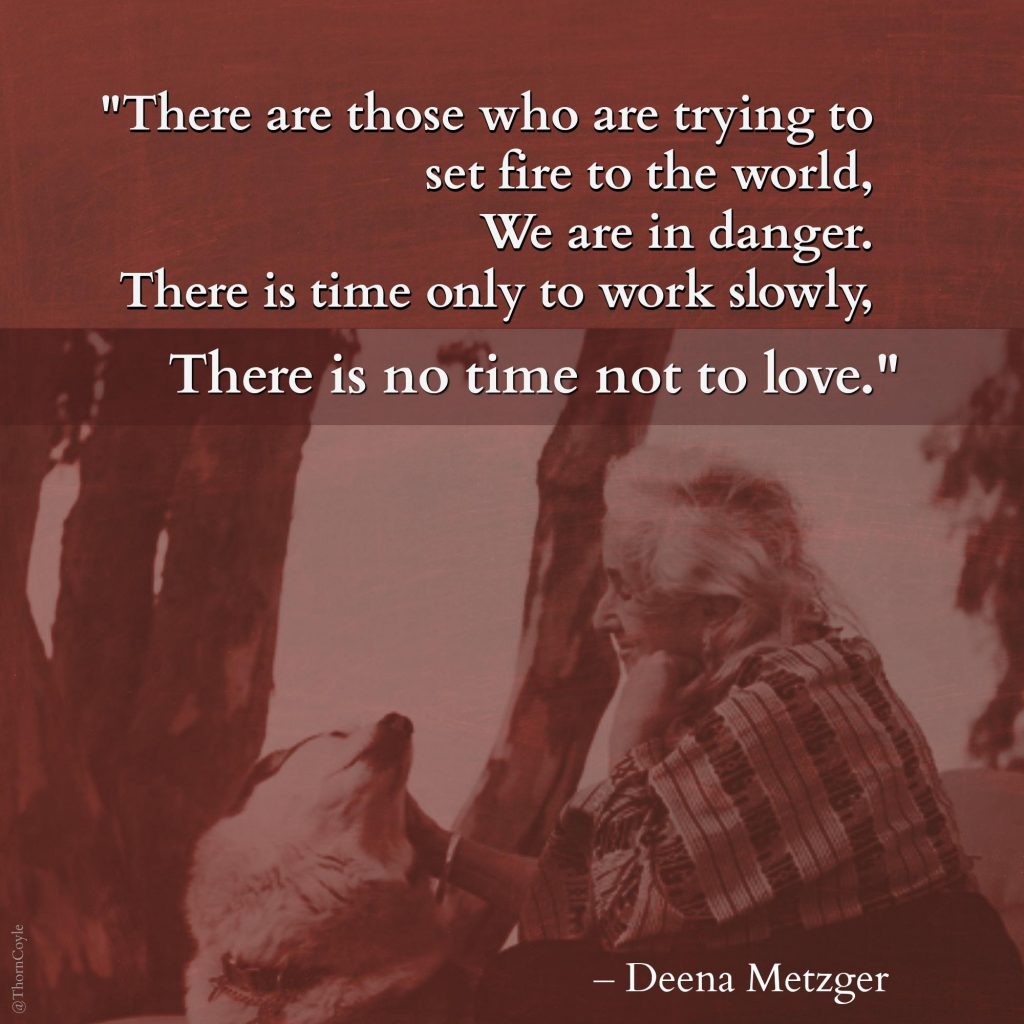In times of crisis, much becomes possible. Structures and patterns that once held a livable, or at least stable, status quo suddenly do not serve. Fear and panic arise, along with anger.
When faced with the intensity of these feelings and urgency of the situation, all of our fight/flight/freeze tendencies come to the fore. It’s easy to fall back into older, more established patterns of protection, though they’ve failed to serve us in the past. We want to stick our heads in our shells and wait for the storm to pass. We want to attack any and every apparent threat, unable to pause for a moment to relax, constantly on guard. Or, for some of us, we completely shut down, dissociate, or simply feel frozen on the spot.
Of course we miss even the illusion of safety and stability, and long for it to return. Some of us would do nearly anything to get it back, make any sacrifice, commit to any responsibility. It is one of the reasons that so much political and advertising language fosters a mentality of crisis. Whip up enough fear and urgency, stimulate that survival drive to flood your brain, and before long we find that we’ve permanently lost rights and opportunities we’d before taken for granted.

All of this happens in the personal world, too. The urge is to do whatever it takes to end the crises, even at the cost of our health and deepest values. Years ago, during the Great Recession, I spent months fixating on applying to jobs and freaking out about being forever unemployed. That was an old career, one I didn’t even like that much, but one that generated a modicum of stability and kept me from facing all my fears. I tolerated abusive behaviors from a boss because I didn’t want to lose even the minimum wage job I had. I felt about two days away from utter ruin.
Around that time, I decided I could use the energy of that crisis to “become more awesome.” I wasn’t sure exactly what I meant by that, only that it felt more productive than letting the crisis eat me from within. Therapy and daily spiritual practice supported me, as well as my partner and community. I realized that my old patterns of work, job seeking, money and self-management no longer served. Whether it was a temporary thing or permanent, the options either seemed to keep repeating unworkable behaviors or embrace the terror and instability to create something new. So I committed to the customer service job I had, and decided to go to school to get a new career.
In times of crisis, structure loosens and becomes flexible. Those who have the will, the resources, or the support can make significant changes. Those who are the most effective seem the ones who are least hindered by clinging to what no longer works, who accept the instability and imminence of change and have a strong vision to promote. For these people, the emotions engendered by crisis become fertilizer and fuel.
Now is the time. Now is the time to root into your deepest values. Now is the time to branch into your most inspiring vision of possibility. Now is the time to stop spending your energy fighting on their terms, and speak boldly in your own words.

“There are those who are trying to set fire to the world. / We are in danger. / There is time only to work slowly. / There is no time not to love.”

